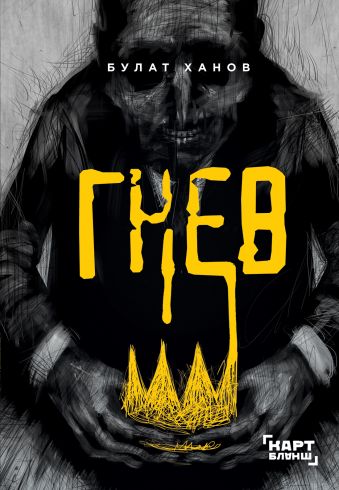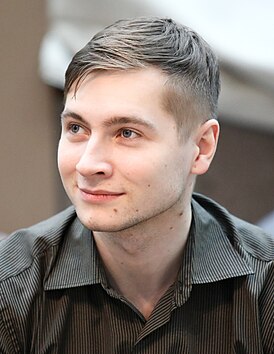November 2020 is a busy month for RusTrans. After spending many months in socially distanced limbo, and our diaries cross-hatched with cancelled conferences, we finally reaped the benefits of inhabiting the virtual world! In a way which would not have been possible pre-Covid, where costs and logistics would normally limit our attendance capacity, the entire RusTrans team managed to be in three places at once: Washington DC and Moscow and St. Petersburg. With conferences slashing their costs to encourage online participation, everyone has won. (All we had to do, with varying success, was mind the time differences – and work through weekends).
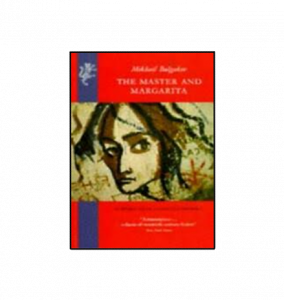 And so, over two weekends in November (05-08 and 14-15) we participated in the Association for Slavic, East European and Eurasian Studies (ASEEES) conference in Washington DC, the theme of which this year (most fittingly) has been “Anxiety and Rebellion”. On Friday 06 November, RusTrans Postdoctoral Fellow Cathy McAteer presented her latest archival research (dating back to the blissful days when archives were open for researchers) to the panel ‘Literary Translators from Russian: Networks and Reception’. Her paper, ‘From Wedgwood to Wordsmith: A Micro-Historical Cameo of Michael Glenny’, explored the professional background of famed British translator of Mikhail Bulgakov’s Master and Margarita (as well as works by Alexander Solzhenitsyn and the less well-known dissident author Georgii Vladimov (Vernyi Ruslan/Faithful Ruslan)).
And so, over two weekends in November (05-08 and 14-15) we participated in the Association for Slavic, East European and Eurasian Studies (ASEEES) conference in Washington DC, the theme of which this year (most fittingly) has been “Anxiety and Rebellion”. On Friday 06 November, RusTrans Postdoctoral Fellow Cathy McAteer presented her latest archival research (dating back to the blissful days when archives were open for researchers) to the panel ‘Literary Translators from Russian: Networks and Reception’. Her paper, ‘From Wedgwood to Wordsmith: A Micro-Historical Cameo of Michael Glenny’, explored the professional background of famed British translator of Mikhail Bulgakov’s Master and Margarita (as well as works by Alexander Solzhenitsyn and the less well-known dissident author Georgii Vladimov (Vernyi Ruslan/Faithful Ruslan)). 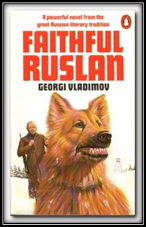 Her microhistory spotlighted some of Glenny’s translatorial dispositions (as gleaned
Her microhistory spotlighted some of Glenny’s translatorial dispositions (as gleaned 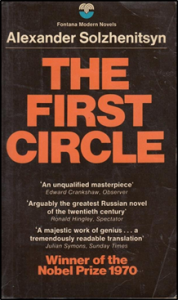 from a range of primary material: letters, reviews, articles, notebooks spanning decades) and emphasised some translators’ natural inclinations towards the role of ‘translator-humanitarian’, which Glenny assumed later in his career by advocating for struggling living authors (Vladimov, for example, in the months preceding his ultimate defection), and for deceased authors denied full literary recognition (Bulgakov).
from a range of primary material: letters, reviews, articles, notebooks spanning decades) and emphasised some translators’ natural inclinations towards the role of ‘translator-humanitarian’, which Glenny assumed later in his career by advocating for struggling living authors (Vladimov, for example, in the months preceding his ultimate defection), and for deceased authors denied full literary recognition (Bulgakov).
Fellow panellists gave fascinating papers on their research into authors/translators, networks and reception. Natalya Rulyova presented ‘Collaborative Self-Translation: Joseph Brodsky and His Translators’; Anna Karpusheva spoke about ‘Svetlana Alexievich’s Prose in the West: A Puzzle for a Translator’, and Julia Trubikhina gave us ‘Translating Elena Shvarts: The Shapeshifting of the Lyrical Subject’. Our chair Ronald Meyer skilfully (and genially) kept us on time and our discussant Elena Zemskova provided careful scrutiny, insightful commentary, and apposite questions, for which our thanks.
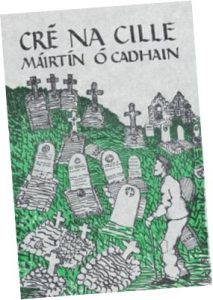
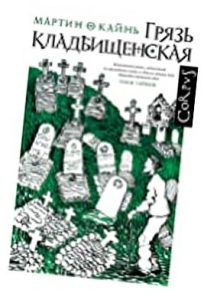 At midday British time on Saturday 7th (early morning for some in the US), RusTrans Principal Investigator Muireann Maguire participated in and chaired her panel, ‘Literary Translation from Russian in a Global Context’. This panel united three papers: Muireann’s ‘Houses of the Dead: Dostoevsky in Irish Literature’, Elizabeth Geballe’s ‘Scandalous Homage: E.-M. de Vogüé’s ‘Translation’ of Dostoevsky’, and Lana Soglasnova’s ‘One-poem Multilingual Translations: A Multidisciplinary Perspective’. Acting as co-discussant (with Dr Jinyi Chu), Cathy used her slot to draw parallels from all three papers with Pascale Casanova’s titular concept of the World Republic of Letters. Casanova’s research tracks the global ebb and flow of national literatures. Muireann’s, Elizabeth’s, and Lana’s papers each spoke to some aspect – or incarnation – of the emergence and disappearance of national literatures in translation. Death, an overt literary theme in both Elizabeth’s and Muireann’s papers, also served as a metaphor for translation. Elizabeth described how the French scholar Eugène-Melchior de Vogüé demanded a literary re-naissance for moribund French realism specifically through translations of Russian literature. Muireann spoke about Irish novelist’s Máirtín O Cadhain’s homage to Dostoevsky in his 1949 masterpiece Graveyard Clay, which owed its genesis, as she argued, to The House of the Dead, a text very much alive in translation. And yet, unlike its transnational exemplar, O Cadhain’s novel itself has risked literary death because it is written in a localized (and now almost extinct) dialect of Irish, and was not translated into any
At midday British time on Saturday 7th (early morning for some in the US), RusTrans Principal Investigator Muireann Maguire participated in and chaired her panel, ‘Literary Translation from Russian in a Global Context’. This panel united three papers: Muireann’s ‘Houses of the Dead: Dostoevsky in Irish Literature’, Elizabeth Geballe’s ‘Scandalous Homage: E.-M. de Vogüé’s ‘Translation’ of Dostoevsky’, and Lana Soglasnova’s ‘One-poem Multilingual Translations: A Multidisciplinary Perspective’. Acting as co-discussant (with Dr Jinyi Chu), Cathy used her slot to draw parallels from all three papers with Pascale Casanova’s titular concept of the World Republic of Letters. Casanova’s research tracks the global ebb and flow of national literatures. Muireann’s, Elizabeth’s, and Lana’s papers each spoke to some aspect – or incarnation – of the emergence and disappearance of national literatures in translation. Death, an overt literary theme in both Elizabeth’s and Muireann’s papers, also served as a metaphor for translation. Elizabeth described how the French scholar Eugène-Melchior de Vogüé demanded a literary re-naissance for moribund French realism specifically through translations of Russian literature. Muireann spoke about Irish novelist’s Máirtín O Cadhain’s homage to Dostoevsky in his 1949 masterpiece Graveyard Clay, which owed its genesis, as she argued, to The House of the Dead, a text very much alive in translation. And yet, unlike its transnational exemplar, O Cadhain’s novel itself has risked literary death because it is written in a localized (and now almost extinct) dialect of Irish, and was not translated into any 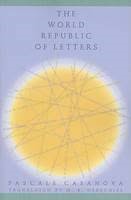 international languages until the twenty-first century. The common theme binding all the anthologies explored in Lana’s paper is the resuscitation of dead poets, short-story writers and minority ethnic languages, projecting them either internally or externally into dozens of world languages as an act of outward-looking advertisement. The rationale behind such large-scale projects recalls Johann Herder’s 18th century claim, cited by Casanova, that ‘each epoch and nation possesses its own special character’ (2007, p. 76). One way to challenge unequal distribution of power in the emerging literary world is by creating a repository of national literary wealth which springs from ‘a country’s entire cultural and historical development’ (ibid.). It seems this might be the key skopos behind these anthologies, which we were told require significant investment, but also have the capacity to act as a vehicle for healing, by allowing the State to atone for historical instances of national domination of peoples, literatures, and languages.
international languages until the twenty-first century. The common theme binding all the anthologies explored in Lana’s paper is the resuscitation of dead poets, short-story writers and minority ethnic languages, projecting them either internally or externally into dozens of world languages as an act of outward-looking advertisement. The rationale behind such large-scale projects recalls Johann Herder’s 18th century claim, cited by Casanova, that ‘each epoch and nation possesses its own special character’ (2007, p. 76). One way to challenge unequal distribution of power in the emerging literary world is by creating a repository of national literary wealth which springs from ‘a country’s entire cultural and historical development’ (ibid.). It seems this might be the key skopos behind these anthologies, which we were told require significant investment, but also have the capacity to act as a vehicle for healing, by allowing the State to atone for historical instances of national domination of peoples, literatures, and languages.
Naturally, there were other ASEEES conference panels/roundtables which coincided specifically with RusTrans research interests, including ‘Translating Transculturally from the Caucasus and Central Asia’, a roundtable featuring US translators Kate Young, Carol Apollonio and Shelley Fairweather-Vega in discussion with fellow colleagues about the translation publishing, funding, and reception in the West of literature from the Caucasus and Central Asia, about the legacy of Soviet ideology over publishing practices, the quality of editing translations, and the willingness (or lack of) among Western publishers to take on commissions (taking us back to a now-familiar sticking point: if translators are not paid to come up with a sample text for translation, how is this supposed to happen sustainably?).
We also welcomed the panel ‘Overcoming the Anxiety of Authorship: Film Adaptations of Russian Classics in the 1990s-2000s’ chaired by Olga Hasty, with papers by Alexandra Smith, ‘Reimagining Fathers and Sons for the 21st Century: Dunya Smirnova’s 2008 Appropriation of Turgenev’s Novel’, Olga Sobolev’s ‘So could it be the same Anna?: The 2012 British Screen Version of Tolstoy’s Novel’ and Olga Partan’s ‘Anton Chekhov’s Plays on the American Screen: Vanya on 42nd Street (1994) and The Seagull (2018)’, with Milla (Lioudmila) Fedorov as discussant. A major theme of this panel was that the reader as viewer, now that some weighty Russian literary classics increasingly bypass reading by being repackaged as a visual, on-screen experience instead. This realisation may have made purists panic, only for them to be rapidly placated by Olga Sobolev’s statistics: sales of War and Peace, it seems, rose by 50% after the BBC aired Andrew Davies’s tv adaptation. If only we could now establish how many of those purchases were read (from start to finish – not just the Natasha scenes – and for long enough to realise that there is no incest in the original!), and how many readers went on to pick up another Russian novel afterwards. 
A panel which surprised with its methodological offerings (on top of its fascinating content) was Sunday’s ‘Tamizdat as Cold War Literary Phenomenon’, with Denis Kozlov as Chair and papers by Ann Komaromi ‘Time-Delay Tamizdat’, Yasha Klots ‘Fantastic Realism Goes West: The Tamizdat Project of Abram Terts and Nikolai Arzhak’, Jessie Labov ‘Digitized Tamizdat: East-West Networks of Texts, People, and Ideas during the Cold War’, and Alexander Jacobson ‘The Case of the Four Gulags: Tamizdat as Publishing Practice’ (the discussant was Olga Matich). Jessie’s paper applied theoretical methodologies which offer a highly relevant framework for the interpretation of digital archive research. We came away with titles to consult – including Katherine Bode’s Reading by Numbers (2012) – a reading exercise which will come into its own as we spend the next few years extracting meaningful data from digital resources. Our thanks to all these wonderful panels, the erudite speakers, and to the organisers of ASEEES for not balking at the prospect of transferring their major conference online. Our team has come away with online innovations inspired by ASEEES which will help to shape our own (admittedly smaller) Translation Phoenix conference next Spring in Cambridge.
And just when you thought the weekend was quite busy enough with one conference, cue: Institut Perevoda’s 6th International Congress of Translators on the theme of ‘Literary Translation as a Medium for Cultural Diplomacy’, beaming in from Moscow and St. Petersburg from 12th-15th November. And so began the fun of juggling time zones, but how worth it! This year’s Congress, though shorter than ASEEES, hosted over 350 participants from 53 different countries (plus Russia), and offered a packed programme of Zoom panels, split into seven sections and running in parallel throughout the day:
- Prose Translation
- Poetry Translation
- Theatre, Cinema, Graphic Novels
- Children’s and Youth Literature
- Writer, Translator, Publisher: the art of compromise
- The Linguistic Landscape of Literary Translation
- The Science of Translation: Schools and Workshops

And not only that, but interviews too (with Maria Stepanova, Roman Senchin, Andrei Astvatsaturov, for example), a flashmob, videos by key industry players, and an announcement in the last few hours of the Congress of ReadRussia’s finalists.

François Deweer
There was impressive flexibility for participants to move from one panel to another and catch a flavour of all seven categories. This Congress was an opportunity to re-connect with familiar faces (Marian Schwartz, Lisa Hayden), re-connect with some also juggling ASEEES (Carol Apollonio, Kate Young), and make new acquaintances through the chat and discussions; share global industry knowledge; and muse on the future of translation publishing, especially as it navigates a route out of the unexpected challenges posed by Covid-19. Cathy’s paper ‘Современная русская литература за границей: случай ошибочной идентификации’ (‘Modern Russian Literature Abroad: A Case of Mistaken Identity’) featured in the section ‘Writer, Translator, Publisher: the art of compromise’ along with papers on translating from Korean (Alexandra Finogenova) and Italian (Marina Arias-Vikhil) into Russian, about Georgian reading preferences in Russian literature (Tamara Rekk-Kotrikadze), and what the French Russian Library is publishing and selling (by our exemplary moderator, and co-ordinator of France’s Russian Library, François Deweer).

Carol Apollonio
Cathy’s paper – gauging the extent to which the Anglophone West’s obsession with classics of Russian and dissident literature prevents the promotion of new Russian literary sensations in translation – posed more questions than it could answer, and duly prompted some lively discussion in the chat. If you would like to hear the paper for yourselves, you can watch it here, and in fact, all the papers which were presented during the Congress. Institut Perevoda did a marvellous job of uploading all panels in record time on YouTube for free catch-up for all (ASEEES, alas, does not yet appear to have recorded or uploaded anything like the same amount). You’ll find Lisa Hayden talking about translating Vodolazkin, Marian Schwartz sharing her author-translator interactions with Nina Berberova, Galina Alekseeva discussing the history of Tolstoy in Anglophone translation, and Carol Apollonio on the enhanced understanding students can gain of a source text by considering multiple, historical translations (in this case, of Crime and Punishment), and many, many more! On Nov 14th, the longlist of finalists for the «Читай Россию/Read Russia» prize 2020 was officially announced (it includes many brilliant translations and many friends of RusTrans); the winners will be announced on Dec 22nd. Can you handle the suspense?
Cathy McAteer with Muireann Maguire
